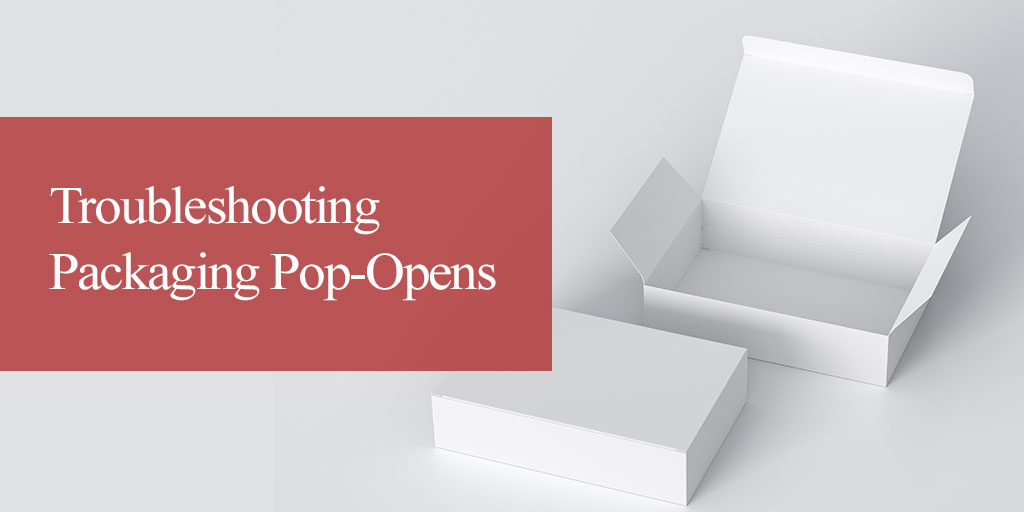If you make rigid boxes, chances are you have dealt with turn-ins that have popped open. Annoying. We know!
Pop-opens happen for several reasons. Below we touch on common challenges and provide solutions to packaging pop-opens to keep production running smoothly.
Problem 1: Not Using the Right Amount of Glue
Rigid boxes are often adhered together using gelatin glue. If you are not using the right amount of glue, it could spell trouble for your production line. Using a Mil depth gauge is the best way to ensure your applying the correct amount of adhesive.
- Using too little adhesive causes pop-opens. Check your adhesive manufacturer’s technical information to know how much glue to apply. For LD Davis protein glues, apply 1 to 2 mils of adhesive to your substrates.
- Using too much adhesive causes pop-opens and warping issues. Applying extra glue to a substrate doesn’t mean the bond will be stronger. Also, since gelatin glue is applied as a liquid, the additional moisture can cause the board to warp
Problem 2: The adhesive is Set to the Wrong Temperature
Getting the most out of your adhesive means using it at the proper temperature. Gelatin glue should be applied at an operational temperature between 140°F and 150° F.
Applying the adhesive below this temperature can cause the glue to set too quickly and not properly bond. Cold glue can also stick to your equipment, creating a mess. Running the glue above recommended temperatures can cause the adhesive to burn and ruin your application.
Problem 3: Improper Compression
If some of your turn-ins are popping and some are not, you might have a compression issue with your equipment.
For example, manufacturers using Emmeci box-making machines will need to check that the compression at the "plunger" and "form" is set to the proper and recommended settings. If you cannot adjust the compression settings in-house, you should contact your equipment manufacturer directly for assistance.
How To Test if Your Adhesion is Correct
When manufacturing rigid boxes, the sure way to test if you have the right adhesion is to test the tensile strength of the bond.
- Take one or several rigid boxes produced for testing and put them to the side for testing.
- Grab the sealed turn-in for the wrap inside the box and pull! This will destroy the package and peel the wrap away, but you will be able to see how well the adhesive holds the wrap to the box board.
- If the wrap resists being pulled away and tears, this is called a "good fiber tear," which means you have proper adhesion.
- If the wrap is easy to pull away from the box board, you don't have proper adhesion and issues with glue application or compression.
Check out our video below to see how to test your rigid box adhesion.
Having Challenges with Troubleshooting Pop-Opens?
Issues happen for various reasons, and solving them can sometimes take a multipronged approach. If you've checked your temperature, application thickness, and compression settings, another factor, like your facility's environment, could be affecting production.
Sometimes misconceptions about adhesives can also be a factor in why pop-opens occur. No matter the cause, if you're having trouble with pop-opens, our team can help you! Contact us, and we can assist you with your gelatin glue application for rigid boxes.



